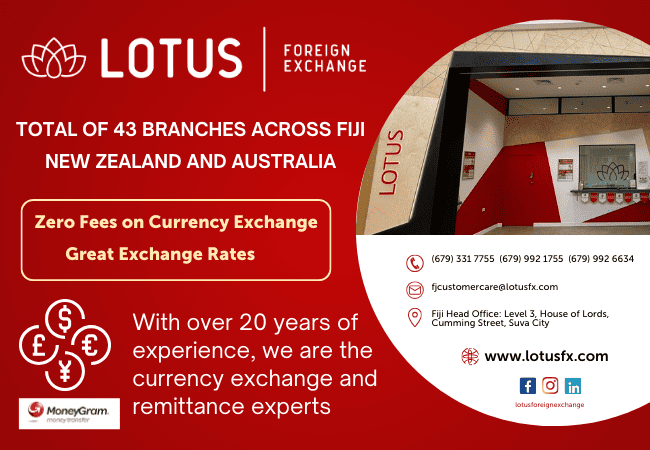By Samantha Magick
As the daughter of an international public servant, Sonam Sapra has lived all over the world.
That nomadic, rich lifestyle is reflected in her latest fabric collection, titled ‘Worldly’, which takes ornamentation from many of the countries she has lived in and reimagines them in a new way.
“When you see it from far away, it looks like a tribal print. But when you come close, you’ll see ornamentation from Bangladesh, ornamentation from Iran, Africa, Fiji, Japan, all these places. I love those elements of surprise, where you see something from a distance, and you go in close and there’s a whole different thing going on.”
Sapra reopened her boutique, Handcrafted Island Essentials, at the Sofitel Resort and Spa on Denarau in December 2021, just before the borders reopened. She had designed the fresh, modern staff uniforms for the hotel and observing Sapra’s work ethic, dedication and passion for her craft, management offered her a boutique space at the resort.
That boutique is a jewel box of a store, displaying caftans, short and shirt sets, bags and other accessories, and bolts of vibrant cotton silk fabrics.
“When they said, ‘Do you want this space?’, I don’t think they realised what was going to happen with it. They thought it was going to be a boutique that opens up and just sells ready-made clothes. I didn’t know what was going to happen either! But now it’s become a service. It’s not just a boutique… you go in there and you can create; it’s a very creative process with the customers as well, and they’re taking a memory of Fiji,” Sapra reflects.
Sapra’s father, Dr Sharad Sapra, worked as Director of Global Innovations at UNICEF, where his role was to empower women and children; connecting them with each other and resources to get the opportunity to be seen and be heard, as Sonam describes it.
“Can you imagine what it’s like being the daughter of someone like that,” she says.
“I used to sit in my room and doodle, doodle, doodle. And my dad walked in one day and just saw walls covered in art.” He encouraged her to make her artwork functional, and to apply it to products people wear.
Her process involves initially drawing directly with pen on paper. “I don’t use pencil because I love the mistakes. I love working around them. And I just think that’s what makes it unique and authentic, especially with AI and all this stuff going on.”
She continues that with so much ‘art’ now computer-generated, “I feel like mistakes are the only thing that makes it real.” After working on paper, she digitises and then manipulates the images to create balance and harmony in the whole, which means that what she starts out with often turns into very different pieces.
The brilliant colours of her work bely the ‘dark place’ Sapra says she has to go to, in order to create them.
“When people come into the boutique, they say ‘everything’s so bright, you must be so happy’. And actually, I have to go to a really dark place in order to create this because I have to isolate myself for days.” Sapra says she listens to “very emotional, romantic, touching music, I have to get to a very emotional state to feel the beautiful things that I want to feel in order to create it. So people think okay, she’s sitting there drawing butterflies and these things, but the butterfly represents life and the dragonfly represents new beginnings. There’s a reason why I’ve chosen these things.”
Sapra’s retail team is as passionate about her work as she is. “It’s their business too,” she says. Ideas like customisation of designs for clients, and product lines such as bags, hats and scrunchies that use fabric offcuts and speak to the desire to be more sustainable, came from her team. “They brought that to life, it was not me,” Sapra says.
She is currently printing small batches of 100 metres on cotton and silk georgette, to try and keep the fabrics ‘authentic and exclusive’. And despite fielding many requests to expand and supply her deigns and fabrics to others, she says she is unwilling to compromise on quality or customer service.
Sapra’s previous collections have been inspired by designers William Morris and Emilio Pucci, and her life in Taveuni, its rich biodiversity, as well as the way it makes her feel.
Her childhood on the garden island involved “playing around, climbing rocks, being by the ocean, rolling around in the jungle, you know, just getting lost like when I do my art… that frees me… it’s uninhibited. So that’s how I feel when I’m in nature. And for me, I want to give that feeling to other people, that peace. I feel that humbleness, that, there’s something greater out there than me. There’s something very peaceful about those thoughts. So the whole idea is that when somebody wears that, they feel that, they feel beautiful.”
As someone who studied and lived in New York, Sapra says ‘she has some of that hustle’. However Fiji gives her something deeper.
“I’ve loved all the places I’ve lived in, but no place has felt like home. When I stepped back here, and I heard the laughter and I saw the mannerisms and everything, I was like, this is my people. I had just never felt so comfortable.
“I think living overseas my whole life… there was a big part of me that was missing. And that became known when I came home.”
This article first appeared in Fiji Traveller, April-June 2023.

